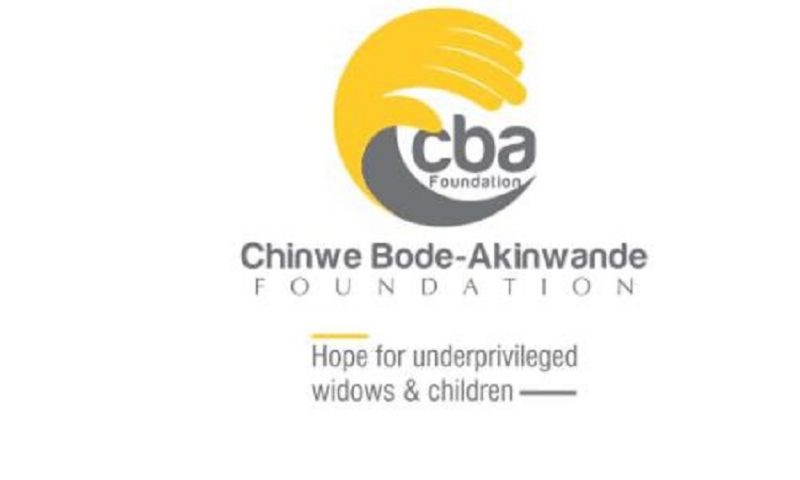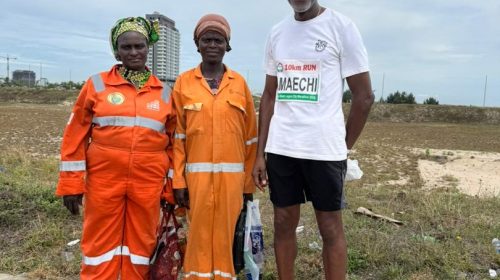WIDOW WHO ATTEMPTED SUICIDE NOW WANTS TO LIVE, THRIVE, COURTESY OF CBA FOUNDATION

“When life gives you lemons, make lemonade” is a proverbial phrase said to have been first coined by the writer Elbert Hubbard in 1915. This simple seven-word maxim is very popular and yet so powerful.
People who quote Hubbard’s proverb so easily and apply it in the same measure in their life and circumstances usually have amazing grass-to-grace stories to tell. Their stories illustrate the world of limitless opportunities that open up to people with a mindset primed to make the best of the situations they find themselves in.
However, there are people out there to whom this sensible phrase makes no sense at all. They have found themselves in a very dark place, where they cannot see any future or way forward. And they want to end it all. Death (by suicide) appears to make more sense to them than trying any further to give life another chance and persevere through the challenges they have lived with for long.
People in such an awful state do not consider that there are other people whose situations are far worse than theirs but are hanging on and still trudging ahead in hope that better days would come. They do not think of drawing inspiration to live and keep trying from those other people. They just want to end their life.
This was the position where Mrs Abiola Jacob was months ago when she decided she would take her own life by jumping into the sea. Being a widow for 17 years was bad enough. Not being able to make something of her life in her widowed state after trying for years was devastating. It was what Mrs Jacob could not take any more.
She had had enough of trying. She had lost the will to live and the drive to fight any more for a chance to make something of her life. But for providence, which positioned the group of fishermen that rescued her in the nick of time, she would have joined the growing statistics of people in Nigeria who commit suicide.
That she still finds herself in the land of the living after bidding what she considered her final farewell to the world is one of those miracles that do not happen too often. But that Mrs Jacob’s hope for a brighter future and the will to live and fight for one have been restored is all thanks to the Chinwe Bode-Akinwande Foundation (CBA Foundation) and the public-spirited individuals and organisations that have continued to support the Foundation in its work amongst underprivileged widows and their vulnerable children, since 2015.
Following the great rescue, the rescuers (those selfless fishermen) realised Mrs Jacob was one of the widows in that area who had been a recipient of donations made by the CBA Foundation, as part of its interventions to provide succour to vulnerable widows. They wasted no time in contacting the Foundation to see what further assistance it could provide.
The Foundation was determined that that would be the first (known) and last time suicide would be mentioned in the same sentence with Mrs Jacob’s name. So, it went beyond counselling and encouragement to provide Mrs Jacob with her desired means of livelihood – a provisions-retailing set-up with all the goods and tools (large stock of various brands of soft drinks, table and sachet water, biscuits, among others, as well as a constructed retail display stand, chair, sunshade/umbrella stand) that she would require to start trading right away.
The result of the Foundation’s effort has been magical! A hopeful and elated Mrs Abiola Jacob has emerged, now determined to make the best of her circumstances. The new glow of happiness her life radiates is evidence that she now has a new lease of life.
She now has her own grass-to-grace story, courtesy of the CBA Foundation, who helped to make lemonade for her from the lemons life handed her. Mrs Jacob is so full of praise for the Foundation and prays that “God will continue to provide for them and bless them”.
Mrs Jacob’s new story is one that is likely to encourage a rethink in any vulnerable widows and challenged persons who have been contemplating suicide. Hence, this piece and other efforts to spread her new story.
No matter the lemon life hands you, lemonade can be made from it. If you have reached your wit’s end in trying to figure out how to make lemonade from the lemons life has handed you, you should not keep your struggles to yourself, or wait till you get to that very dark place.
You should quickly reach out and call for help in line with the saying “a problem shared is a problem halved”. Suicide should not feature in your consideration. It should not be elevated to an option. Because it is not. It is not even a last resort. That you have reached your wit’s end does not mean that people whom you could turn to for help would find themselves also stuck and unable to think beyond the mental block that seems to point to suicide as a way out of your predicament.
Life happens – that is, life hands people lemons and this happens every now and then. But part of what makes humans the greatest species in the entire world is that we (or those we turn to for support) can help to make lemonade from life’s lemons. There is no doubt that life has been particularly more challenging for many, especially vulnerable groups like widows and their children, since the COVID-19 pandemic began ravaging the world.
But it has been observed during this same period that humanity has risen in an unprecedented way to meet the challenge and people have been most kind, making spirited efforts to reach out to and support others, especially the vulnerable. Given that the world is still in the throes of the pandemic, there should not be any relenting in such efforts.
The vulnerable need more help and support at this crucial time, to make it through. They must not be allowed to lose hope and get to that very dark place, because of the harsh effects of a pandemic that experts contend will one day become history, just like other pandemics that the world had faced in the past. The strong and able should help the vulnerable to keep hope alive, to keep believing, to keep pressing until all of humanity – both the strong and the vulnerable – get past this horrendous tide.
People who are strong and are able to cope with all manner of challenges that come their way should by now appreciate that they have something for which they should be thankful. In the striking metaphor/analogy of the boiling water, potato and egg used in Mel Robbin’s famous quote (“The same boiling water that softens the potato, hardens the egg”), they are the egg that gets hardened and toughened by the boiling water while the potato is softened by it.
Strong people have to be grateful for their ability to chew challenges for breakfast, consume difficulties for lunch and masticate adversities for dinner. They should appreciate their ability to deal with life’s unpleasant and unwanted handout of lemons by making lemonade of them.
However, strong people’s gratitude should not end in self-congratulations over their “superhuman” strength and resilience. Their gratitude should also extend to the desire to give back, not just mere handouts but in a reasonable way that helps to empower, and build the same resilience in, the vulnerable – those who are like the potato softened by the same boiling water that hardens the egg.
This is the purpose the CBA Foundation was created to fulfil, especially for underprivileged widows and their vulnerable children. The Foundation is a ready platform the appreciative strong can immediately adopt to reach out to the vulnerable as a way of showing their gratitude.
The CBA Foundation is an effective vehicle through which resources can be channelled to help vulnerable widows and their children make lemonade from the lemons life has handed them. So, consider partnering with them today in the mission of reaching widows who may be on the brink and helping them to get a second chance at life like Mrs Abiola Jacob.
Do not delay or debate the need to contact the Foundation right away. You can visit the Foundation’s website www.cbafoundation.org and send an email now at: cbafoundationng@gmail.com.







Leave a Reply